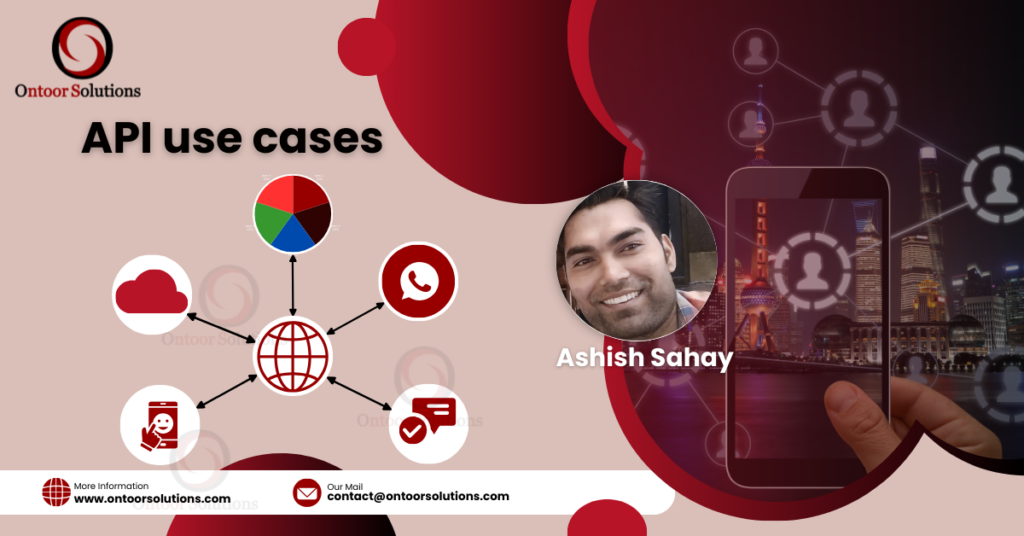In today’s fast-paced digital world, businesses need agile, scalable, and efficient solutions to manage and leverage their data. Oracle REST Data Services (ORDS) on top of Oracle Autonomous Database (ADB) offers a robust platform to meet these needs. By providing RESTful APIs to interact with the database, ORDS facilitates seamless integration, improved performance, and enhanced scalability for modern applications. This article explores the needs, benefits, use cases, development approach, and competitors of using Oracle REST as an API on top of Oracle Autonomous Database.

Why do we need it?
- Scalability: Modern applications require databases that can scale seamlessly to handle large volumes of data and high transaction rates. Oracle Autonomous Database offers this scalability with minimal manual intervention.
- Integration: Integrating disparate systems and services is crucial for businesses. RESTful APIs provide a standard and straightforward way to connect different applications and platforms.
- Agility: Development speed and agility are vital. REST APIs enable quick development and deployment of new features and services.
- Security: Ensuring data security and compliance with regulatory requirements is paramount. Oracle ADB provides robust security features out of the box.
Benefits
- Ease of Use: ORDS simplifies the process of creating RESTful services to interact with the Oracle Autonomous Database. This makes it easier for developers to build and maintain APIs.
- Automatic Tuning and Scaling: Oracle ADB automates many administrative tasks, including performance tuning, patching, and scaling, which reduces the operational burden on development teams.
- Cost Efficiency: By leveraging the autonomous capabilities of Oracle ADB, businesses can reduce the need for extensive database management resources, leading to cost savings.
- Enhanced Security: Oracle ADB includes advanced security features such as encryption, user access controls, and automated threat detection, ensuring that data remains secure.
- High Availability: The autonomous nature of Oracle ADB ensures high availability and reliability, which is critical for mission-critical applications.
Use Cases

- Enterprise Applications: Large enterprises can use ORDS on Oracle ADB to build and expose APIs for their core business applications, ensuring high performance and reliability.
- Data Integration: Organizations can create RESTful APIs to integrate various data sources, enabling seamless data exchange and real-time analytics.
- Mobile and Web Applications: ORDS provides a straightforward way to expose database functionalities to mobile and web applications, enhancing user experience and interactivity.
- Microservices Architectures: RESTful APIs are integral to microservices architectures. ORDS on Oracle ADB allows developers to build and manage microservices efficiently.
Standard Development Approach
- Define API Requirements: Identify the business requirements and data access needs that the API will address.
- Design API Endpoints: Plan the API endpoints, including the HTTP methods (GET, POST, PUT, DELETE) and the data structures they will use.
- Set Up Oracle Autonomous Database: Provision and configure the Oracle Autonomous Database instance to store and manage your data.
- Implement ORDS: Use Oracle REST Data Services to create and configure the RESTful API endpoints, mapping them to the necessary database operations.
- Security Configuration: Implement security measures such as OAuth2, API keys, and role-based access control to protect your APIs.
- Testing: Rigorously test the APIs to ensure they meet functional and performance requirements.
- Deployment and Monitoring: Deploy the APIs and set up monitoring to track performance, usage, and potential issues.
Competitors
- Amazon Web Services (AWS): AWS offers a range of database services, including Amazon Aurora and Amazon RDS, which can be combined with API Gateway to provide RESTful APIs.
- Microsoft Azure: Azure SQL Database and Azure Cosmos DB, coupled with Azure API Management, offer strong competition in the cloud database and API space.
- Google Cloud Platform (GCP): Google Cloud’s BigQuery and Cloud SQL services, along with Cloud Endpoints for API management, provide a comprehensive solution for data management and APIs.
- IBM Cloud: IBM Db2 on Cloud, combined with IBM API Connect, offers robust database and API management capabilities.
- MongoDB Atlas: MongoDB Atlas provides a cloud-based, highly scalable NoSQL database with built-in support for creating RESTful APIs.
Conclusion
Oracle REST Data Services on top of Oracle Autonomous Database provides a powerful, scalable, and secure platform for building modern applications. Its ease of use, cost efficiency, and advanced features make it an attractive choice for businesses looking to leverage their data effectively. While there are competitors in the market, the unique advantages of Oracle’s autonomous capabilities and integrated ecosystem set it apart as a leading solution for modern data management and API development.

